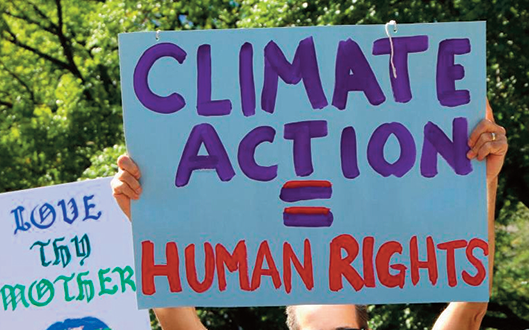
The subject of human rights and climate change has been featured in two key events at the 56th Session of the UN Human Rights Council (HRC) in Geneva: the Annual Panel on the Adverse Impacts of Climate Change on Human Rights on July 1, 2024 and the Interactive Dialogue with the Special Rapporteur on Climate Change on July 2, 2024.
The theme of the Annual Panel was ensuring livelihood resilience in the context of loss and damage due to climate change. The panel consisted of interventions by four expert panelists who underscored the augmenting effects of climate change and the urgent need for just and equitable action, while also considering the issue from labor, legal, and agricultural perspectives. The statements and documentation for the event are available here.
During the Interactive Dialogue (ID), the Special Rapporteur, Elisa Morgera, summarized the findings of her report and outlined her future plans to include the voices of children and youth in her mandate and to clarify the responsibilities of businesses and financial institutions in climate action. Representatives of Honduras and the Philippines, which were visited by the previous Special Rapporteur, made statements in regard to the visits and reports on their countries.
Both sessions provided the opportunity for states and other stakeholders, including National Human Rights Institutions (NHRI) and Non-Governmental Organizations (NGO) to engage with the subject of climate change and human rights. During the discussions, several relevant themes emerged. First, many statements called for greater international cooperation in the forms of financial support, technology transfer, and capacity building. The principle of common but differentiated responsibility in terms of climate financing and the work of mitigation and adaptation was emphasized to ensure that developed countries which have contributed the most to climate change support developed countries which bear the brunt of its effects. Another focus was the need for a just transition to renewable energy and sustainable agriculture. Finally, many comments made during the events highlighted the importance of intersectionality in climate action to prioritize and include the input of particularly vulnerable populations, including women and girls, children and youth, older people, and indigenous people.
The recordings of the Panel and the Interactive Dialogue (divided into Segment 1 and Segment 2) can be watched on UN Web TV.
Image Credit: Marcelo Schnieder/WCC